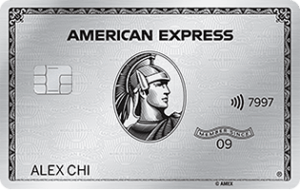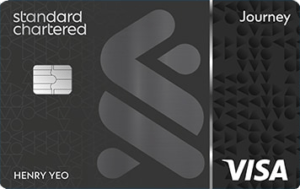While bills like insurance premiums, tuition fees, income tax, rental, and utilities are part of everyday life, you either can’t pay them with a credit card, or if you can, the transaction isn’t eligible for rewards with most banks.
But assuming you’re willing to pay a small admin fee, platforms like CardUp allow you to pay bills and buy miles in the process. Whether this makes sense ultimately boils down to your valuation of a mile, though with the right card and promo codes, most people should be able to make the math work.
In this post I’ll answer some common questions about CardUp, as well as which cards and promo codes help you achieve the lowest cost per mile.
What is CardUp?
 |
| CardUp Pricing |
| First-time CardUp users save S$30 off their first payment with the promo code MILELION. No minimum payment required; for Visa and MC cards only |
CardUp is a platform that allows users to pay bills with their credit card, in exchange for a small admin fee.
Here’s how it works:
- You submit a payment request to CardUp
- CardUp charges your credit card for the amount due, plus an admin fee
- CardUp makes a bank transfer to the receiving party on your behalf. The receiving party need not be registered with CardUp
You earn credit card rewards for the amount charged to your card, and the out-of-pocket cost is the admin fee.
What payments does CardUp support?
CardUp currently supports the following payments:
| 💳 CardUp Supported Payments | |
 | |
|
|
| *Except NTUC Income **Except HDB ***Except SP Group | |
Most of those categories are self-explanatory, though some could use further elaboration.
Renovation includes any payments for home furnishing, painting, flooring, plumbing, carpentry, interior design, and other expenses incurred in the process.
Miscellaneous includes post-paid purchases of goods and services, event services, food catering, accounting fees, legal fees and school bus fees. Other payments may also be processed, subject to approval. An official tax invoice with the recipient’s UEN and bank account details must be submitted.
Does CardUp earn credit card rewards?
Well, yes. That’s kind of the whole point of this.
CardUp transactions code as MCC 7399 (Business Services Not Elsewhere Classified), and will earn rewards with all cards except the following:
- HSBC cards no longer earn rewards on CardUp transactions (since July 2020)
- The UOB One Credit Card no longer offers cash rebates on CardUp transactions (since August 2022)
Refer here for an updated list of cards that award miles and cashback on CardUp transactions, but do note that it’s not comprehensive (e.g. the AMEX Platinum Charge will earn points on CardUp, though the low earn rate and high admin fee mean it’s rarely worth considering).
Unfortunately, bank CSOs will sometimes misinform customers that CardUp transactions aren’t eligible to earn points. This usually happens because the customer asks something like “will insurance paid through CardUp earn rewards?”
Odds are, the CSO has never even heard of CardUp in their life and has no idea what it does. All they hear is “insurance”, and once that trigger word is spoken, the answer will almost certainly be no!
So I wouldn’t worry too much about what the CSO says; so long as it’s not HSBC or the UOB One Credit Card, you’ll get your regular rewards.
Does CardUp spend count towards sign-up bonuses and card benefits?
Generally yes, though some exceptions apply:
- For DBS/POSB, only CardUp rental transactions under MCC 6513 will count towards the minimum spend for sign-up bonuses. All other CardUp payments will not count towards minimum spend, though they still earn base rewards
- Historically speaking, some Standard Chartered and UOB sign-up offers have excluded CardUp spending. However, this exclusion is not consistent, so you’ll need to refer to individual promotion T&Cs- the recent ones I’ve seen do not exclude it
- CIMB does not include CardUp transactions in minimum spend for bonus cashback
Otherwise, CardUp transactions are treated like regular retail spend and count towards the minimum spend for sign-up bonuses and card benefits.
For example, a StanChart Visa Infinite cardholder who spends at least S$2,000 on CardUp in a statement month will earn 1.4 mpd on local currency transactions, instead of the regular 1 mpd.
Does CardUp qualify for bonus points/miles?
No. Even though CardUp transactions code as online spend, they will not earn 4 mpd with cards like the Citi Rewards Card or DBS Woman’s World Card.
Therefore, you should stick to general spending cards for CardUp.
Are there any restrictions on the types of payments I can make?
Due to internal restrictions, American Express and Citi cards cannot be used for car loan or mortgage payments.
In addition to this, American Express cards cannot be used to pay:
- Electricity
- Helper Salary
- Renovation
- Miscellaneous
What’s the best card to use with CardUp?
Since CardUp is basically a way of buying miles, the best card to use for CardUp is the one that gives the lowest cost per mile.
 |
Two things to note about the above formula:
- Both the amount charged and the CardUp admin fee are eligible to earn miles. For example, if I charge S$1,000 to CardUp with a 2.6% admin fee, the full S$1,026 amount will earn miles
- The formula does not take into account the impact of rounding. For example, if I charge a S$1,026 CardUp transaction to a UOB card, I will only earn miles based on S$1,025 (because UOB rounds all transactions down to the nearest S$5). However, the impact of rounding becomes less significant as the amount charged increases
What this formula shows is that we can lower the cost per mile by:
- Maximising the earn rate
- Minimising the admin fee
Or both!
Maximising the earn rate
Since CardUp transactions do not earn bonus points/miles, the equation becomes very simple: Use the highest-earning general spending card you have.
The general rule is that the higher the earn rate, the lower the cost per mile.
1.6 mpd: Citi ULTIMA, DBS Insignia, OCBC VOYAGE (BOS, PPC, Premier), UOB Reserve
| Fee | Cost Per Mile |
| 2.6% | 1.58 |
| 2.25% | 1.38 |
| 2% | 1.23 |
| 1.9% | 1.17 |
| 1.85% | 1.14 |
| 1.8% | 1.11 |
| 1.79% | 1.10 |
| 1.78% | 1.09 |
| 1.75% | 1.07 |
| 1.5% | 0.92 |
1.5 mpd: DBS Vantage
| Fee | Cost Per Mile |
| 2.6% | 1.69 |
| 2.25% | 1.47 |
| 2% | 1.31 |
| 1.9% | 1.24 |
| 1.85% | 1.21 |
| 1.8% | 1.18 |
| 1.79% | 1.17 |
| 1.78% | 1.17 |
| 1.75% | 1.15 |
| 1.5% | 0.99 |
1.4 mpd: UOB PRVI Miles, UOB VI Metal Card
| Fee | Cost Per Mile |
| 2.6% | 1.81 |
| 2.25% | 1.57 |
| 2% | 1.40 |
| 1.9% | 1.33 |
| 1.85% | 1.30 |
| 1.8% | 1.26 |
| 1.79% | 1.26 |
| 1.78% | 1.25 |
| 1.75% | 1.23 |
| 1.5% | 1.06 |
1.3 mpd: Citi Prestige, DBS Altitude, OCBC 90°N, OCBC VOYAGE
| Fee | Cost Per Mile |
| 2.6% | 1.95 |
| 2.25% | 1.69 |
| 2% | 1.51 |
| 1.9% | 1.43 |
| 1.85% | 1.40 |
| 1.8% | 1.36 |
| 1.79% | 1.35 |
| 1.78% | 1.35 |
| 1.75% | 1.32 |
| 1.5% | 1.14 |
1.2 mpd: AMEX KrisFlyer Ascend, Citi PremierMiles, KrisFlyer UOB Card, Maybank Visa Infinite, SC Journey
| Fee | Cost Per Mile |
| 2.6% | 2.11 |
| 2.25% | 1.83 |
| 2% | 1.63 |
| 1.9% | 1.55 |
| 1.85% | 1.51 |
| 1.8% | 1.47 |
| 1.79% | 1.47 |
| 1.78% | 1.46 |
| 1.75% | 1.43 |
| 1.5% | 1.23 |
Minimising the admin fee
As important as earn rates are, they’re just part of the picture because the admin fee also dictates the final cost per mile.
CardUp’s standard admin fee is 2.6% for locally-issued American Express, Mastercard and Visa cards. However, this is frequently discounted; in fact, the de facto fee for Mastercard and Visa is 2.25%.
Here’s the list of current promotions at the time of publishing; you can refer to this page for the latest.
| Code | New | Existing |
| MILELION S$30 off any payment, Visa & MC (T&Cs) | ✓ | ✕ |
| OCBC15 1.5% fee for any payment, OCBC VOYAGE & Premier VI (T&Cs) | ✓ | ✕ |
| OCBC90N15 1.5% fee for any payment, OCBC 90°N (T&Cs) | ✓ | ✕ |
| VTAX23 1.75% fee for income tax, Visa only (T&Cs) | ✓ | ✓ |
| MLCAR178 1.78% fee for car loan payments, Visa only (T&Cs) | ✓ | ✓ |
| SAVERENT179 1.79% fee for rent payments, Visa & MC (T&Cs) | ✓ | ✓ |
| OCBC18 1.8% fee for any payment, OCBC VOYAGE & Premier VI (T&Cs) | ✓ | ✓ |
| 18AMEX 1.8% fee for any payment, AMEX cards (T&Cs) | ✓ | ✕ |
| RECURRING185 1.85% fee for recurring payments, Visa only (T&Cs) | ✓ | ✓ |
| 19AMEX 1.9% fee for any payment, AMEX cards (T&Cs) | ✓ | ✓ |
| OCBC90NV 2% fee for any payment, OCBC 90°N Visa (T&Cs) | ✓ | ✓ |
| OCBC90NMC 2% fee for any payment, OCBC 90°N MC (T&Cs) | ✓ | ✓ |
| GET225 2.25% fee for any payment, Visa & MC (T&Cs) | ✓ | ✓ |
Promo codes can be applied when setting up a CardUp transaction.

You’ll be able to confirm that the promo code is still available before confirming your payment schedule on the final screen.

Conclusion
 |
| CardUp Pricing |
| First-time CardUp users save S$30 off their first payment with the promo code MILELION. No minimum payment required; for Visa and MC cards only |
CardUp allows you to earn miles on bill payments, in exchange for a small fee. The idea is to keep the cost per mile as low as possible, which we do by using the highest-earning general spending card we have, and paying the lowest possible admin fee with promo codes.
CardUp transactions are still eligible to earn rewards with all cards on the market except HSBC and the UOB One Card, so there’s plenty of options.







Probably good to clarify that other UOB cards will only award Based points for cardup transaction.
Tested with EVOL, not recognised as “online” category.
Evol will still contribute to the online spend category if your aim is just to meet the min $600 just that it doesn’t count as a spend
Hello, does Cardup count towards $500 spend for bonus interest for UOB One Account?
CardUp = 2.25% fee -> 1.84 cpm
(Miles awarded include fees)
Citi PayAll = 2.2% fee -> 1.83 cpm
(Miles awarded exclude fees)
Ever since Citi PayAll increases the fee from 2% to 2.2%, It is clear that I will be using CardUp in the future as miles awarded do include fees on CardUp. (To add on: Income tax = 1.75% fee using VISA cards)
Forget about the Citi PayAll 2.2 mpd promo – I can never hit the $8k spend on Citi PayAll payments!
Edit: Just realised CardUp doesn’t support payments to SP group for electricity and utility bills. Oh well, back to using Citi PayAll for those payments! 🙁
Will be using CardUp for the upcoming income tax though for the cheaper 1.75% fee.
Citi payall offering 1.8mpd with 2.2% fee. Works out to be 1.22 cpm
Citi-PayAll 1.8 mpd with 2.2% fee promo requires $8k spend on Citi-PayAll payments, which is not for the majority of the users who do not have such big payments to make.
Could you please confirm that it is still correct? Thank you very much!
read on google review that many users complain about customer service as being a big issue if anything were to go wrong. does anyone have any experience on this?
some users say paying the extra for citipayall is worth it because of CS and security
Tried to pay for income tax with VTAX23 but system showed error saying fully redeemed…
For HSBC, it was mentioned it does not recognise Cardup trxn for “regular rewards”.
However, you do not mention whether HSBC does / does not recognise Cardup trxn for “sign-up rewards”. Can help to clarify?
Will the DBS Altitude AMEX card for cardup earn miles and can I use the promo code 18AMEX for new user?
Hi! i wanted to ask if i were to setup cardup for my AIA insurance payments, do i need to cancel my recurring payments in AIA portal first? then set it up in Card up?